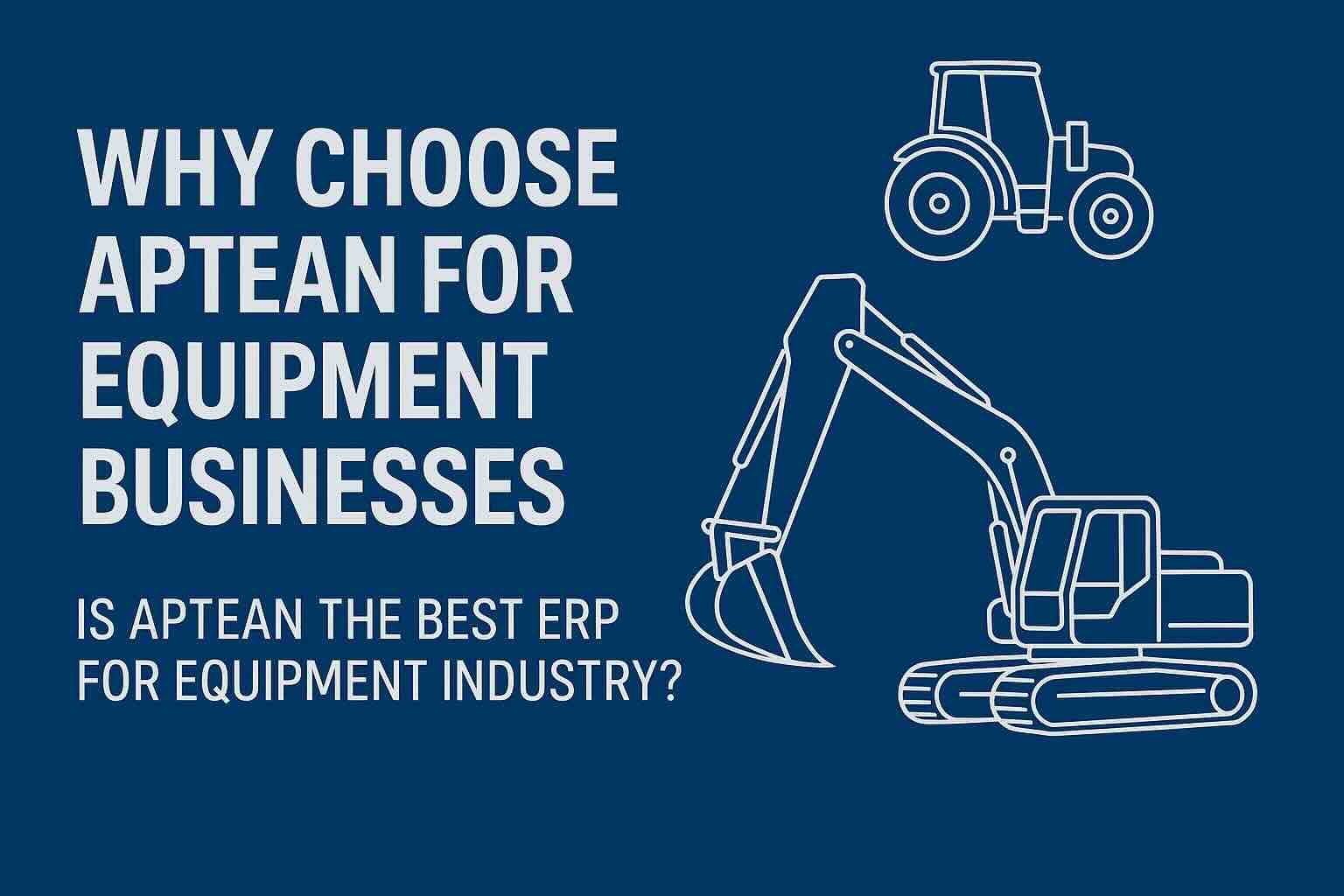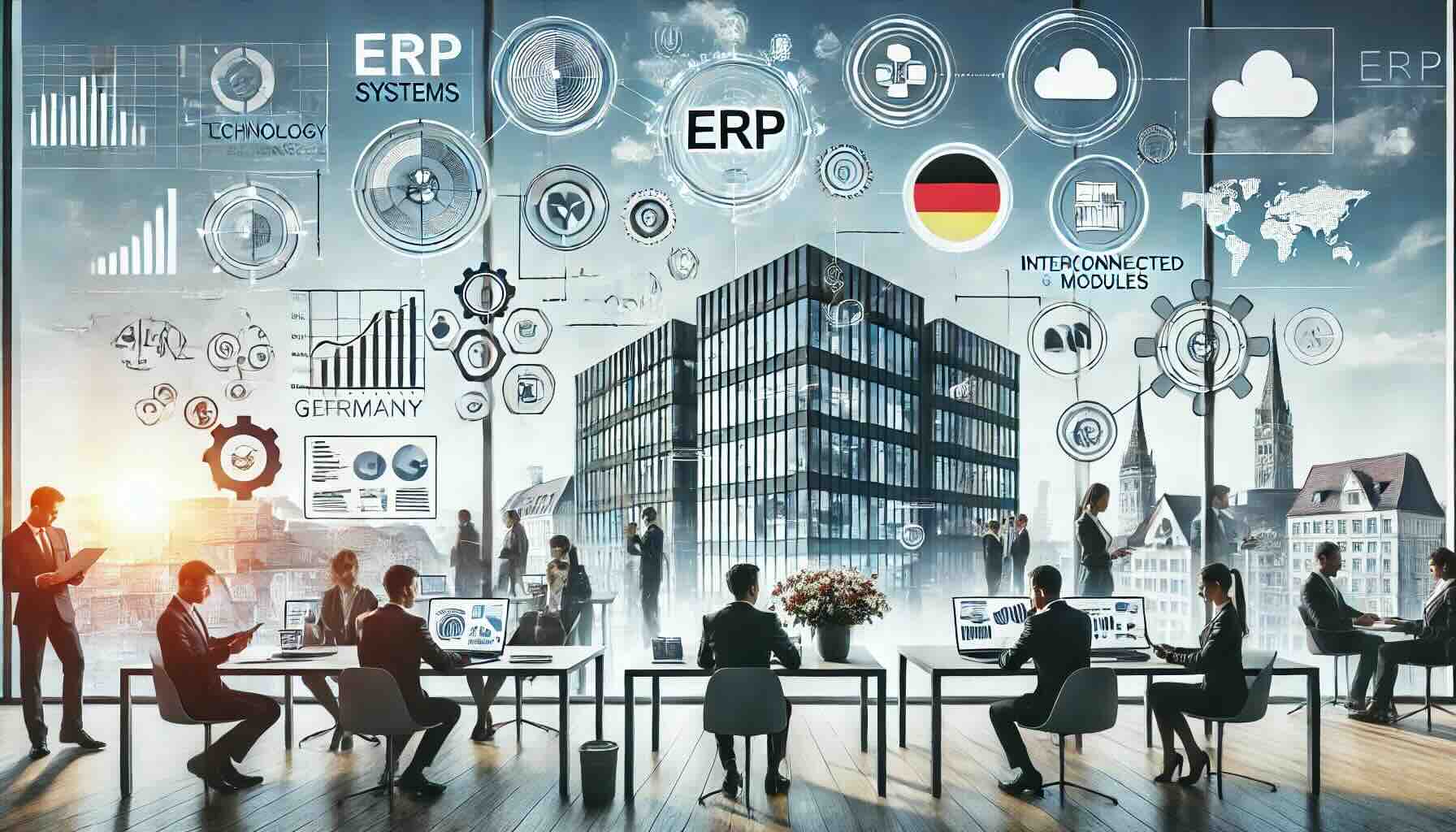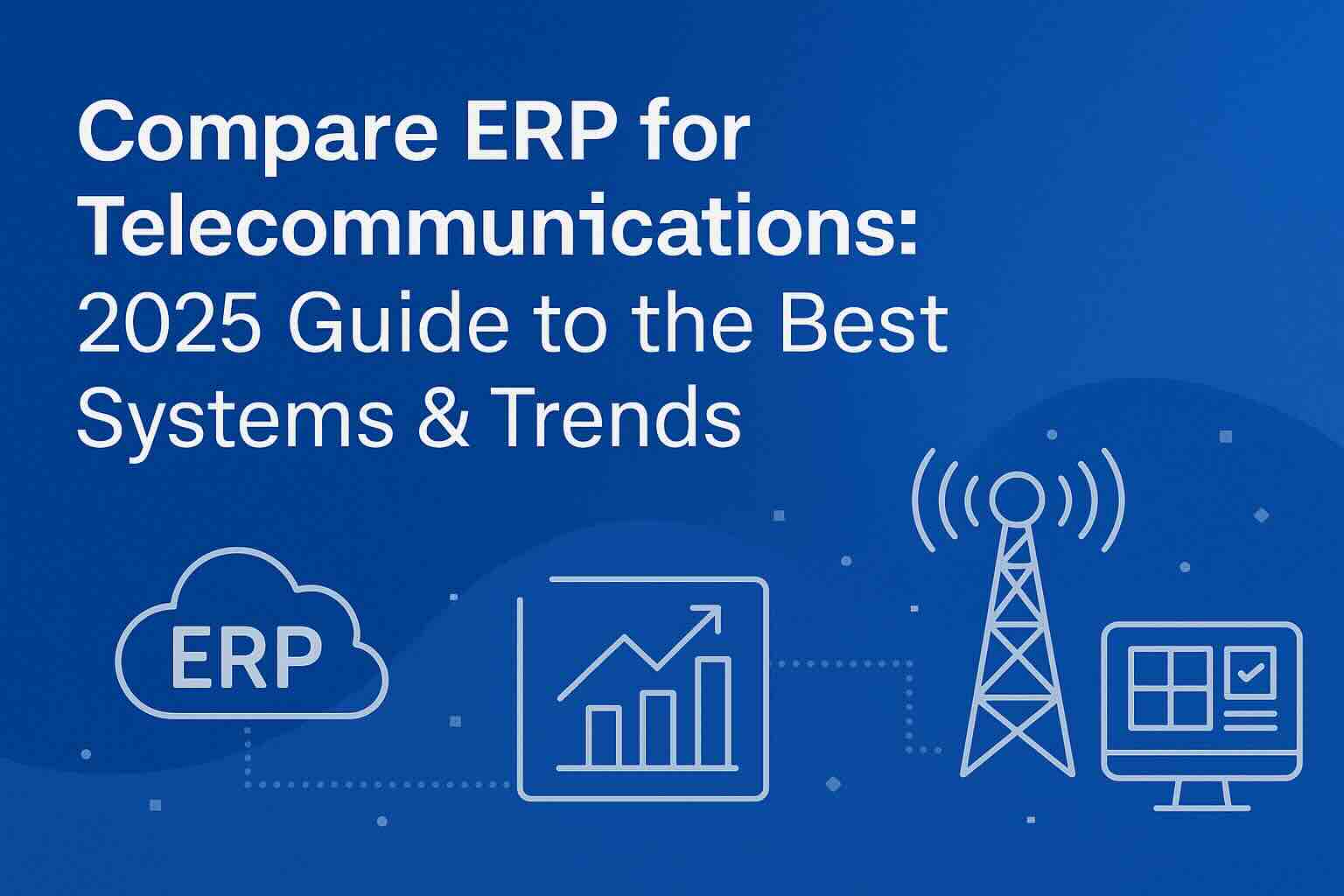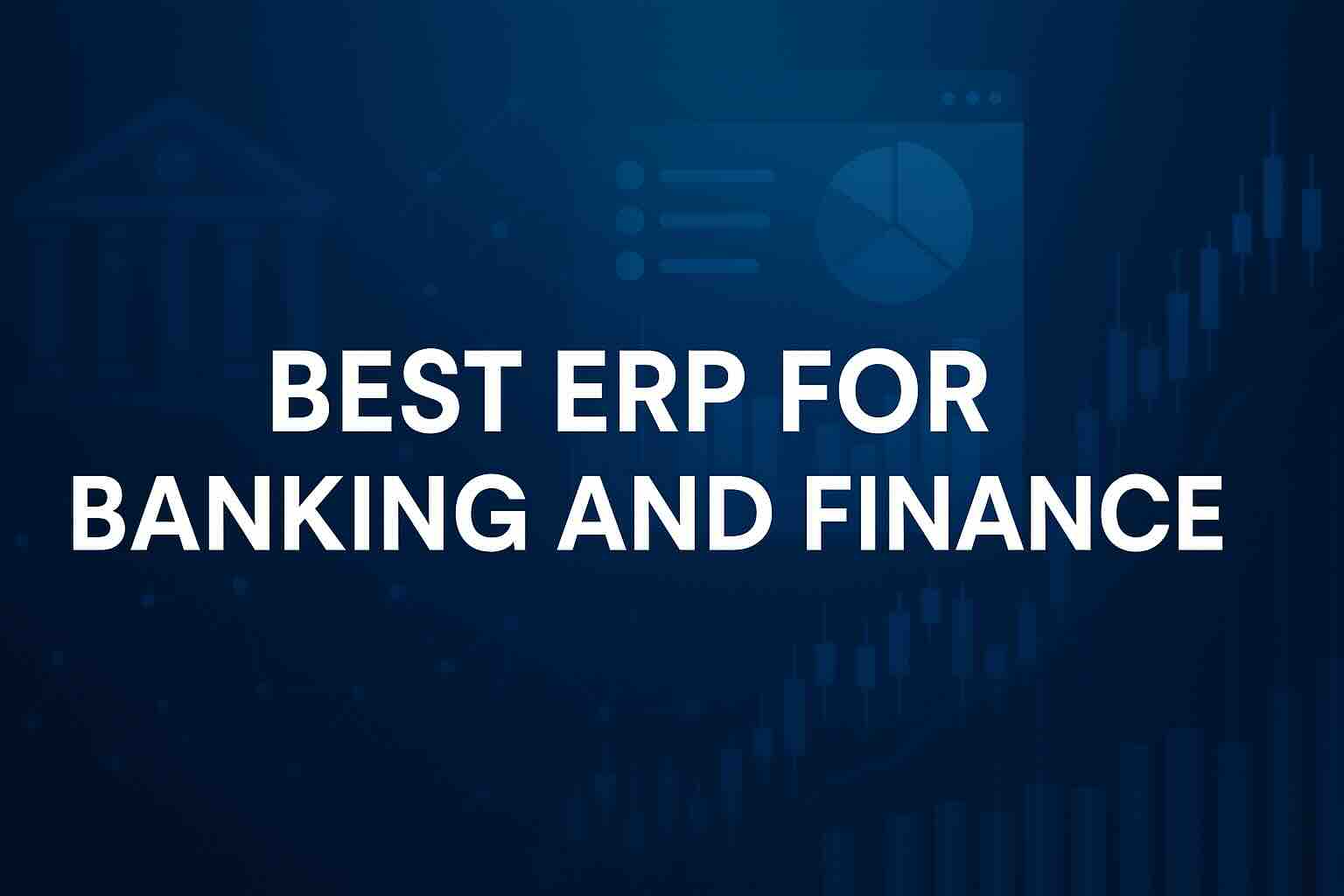Best ERP for Small Distribution Businesses
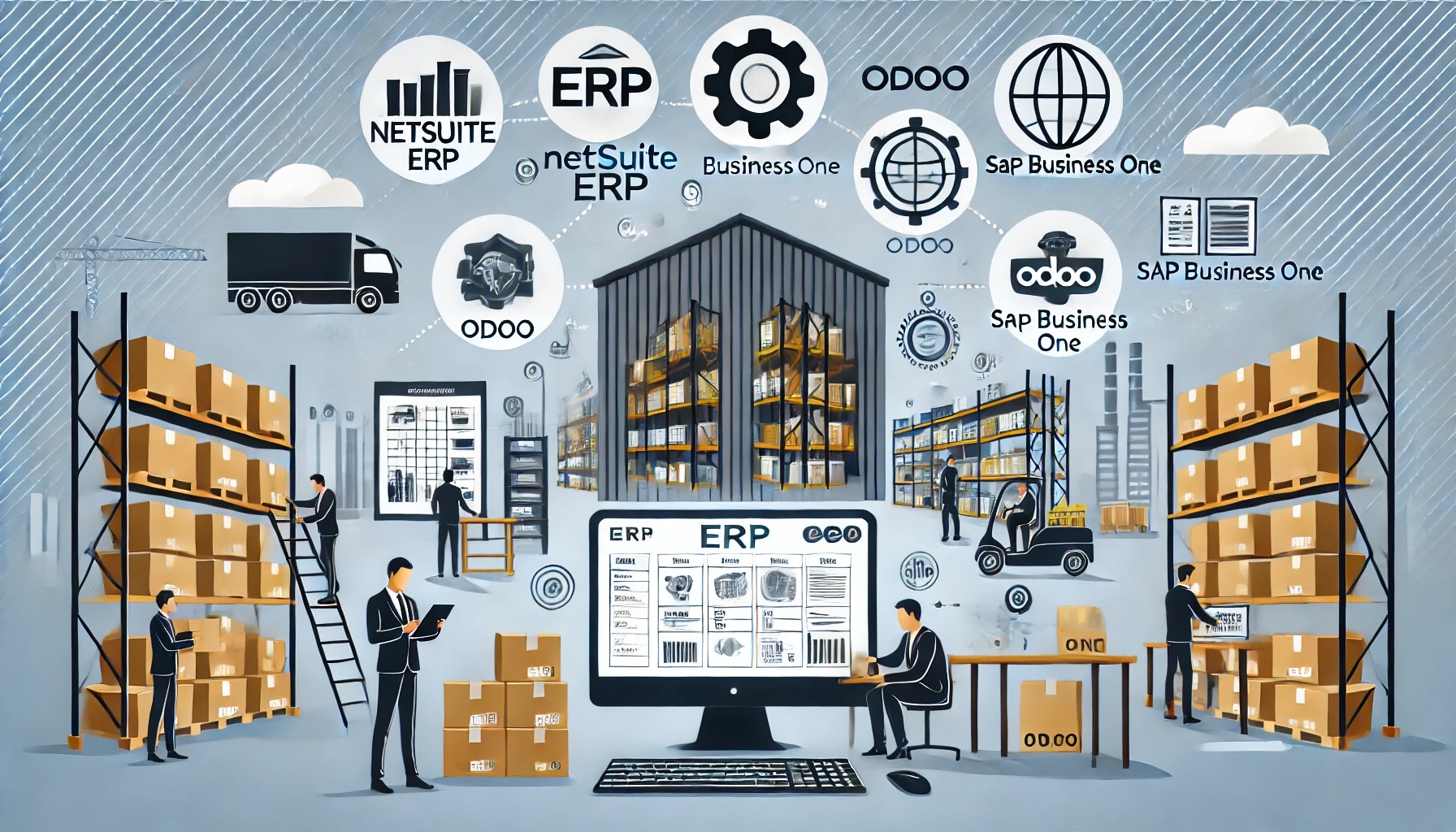
In the competitive world of small distribution businesses, having the right tools to manage your operations is crucial. An Enterprise Resource Planning (ERP) system can streamline your processes, improve efficiency, and drive growth. In this blog, we will explore the best ERP for small distribution businesses, providing a detailed overview of each solution to help you make an informed decision.
Why Small Distribution Businesses Need an ERP
Small distribution businesses often face unique challenges, such as managing inventory, tracking orders, and ensuring timely deliveries. An ERP system integrates various business processes into a single platform, providing real-time insights and facilitating better decision-making. Here are some key benefits of using an ERP for small distribution businesses:
- Improved Inventory Management: An ERP system provides accurate and real-time inventory data, helping you avoid stockouts or overstock situations.
- Enhanced Customer Service: With streamlined order processing and tracking, you can ensure timely deliveries and better customer satisfaction.
- Cost Efficiency: By automating repetitive tasks and optimizing resource use, an ERP system can reduce operational costs.
- Scalability: As your business grows, an ERP system can scale with you, accommodating increased transactions and additional functionalities.
Top ERPs for Small Distribution Businesses
Here are some of the best ERP systems tailored for small distribution businesses, along with a detailed overview of each:
1. NetSuite ERP
NetSuite ERP is a cloud-based solution that offers a comprehensive suite of applications to manage your distribution business.
Overview: NetSuite ERP provides a robust and scalable platform that covers various business operations, including inventory management, order processing, financial management, and customer relationship management (CRM). Its cloud-based architecture ensures accessibility from anywhere, making it ideal for businesses with multiple locations or remote work setups. NetSuite’s advanced analytics and reporting capabilities allow for data-driven decision-making, enhancing operational efficiency and strategic planning.
Pros:
- Comprehensive Features: Includes modules for inventory, order management, financials, and CRM.
- Scalability: Ideal for growing businesses with the ability to add users and functionalities as needed.
- Cloud-Based: Accessible from anywhere, ensuring flexibility and real-time data access.
- Strong Reporting and Analytics: Advanced tools for financial reporting and business intelligence.
Cons:
- Cost: Higher initial and ongoing costs compared to some other solutions.
- Complex Implementation: May require significant time and resources for full deployment.
- Learning Curve: Can be complex for new users, necessitating comprehensive training.
2. Odoo
Odoo is an open-source ERP system that offers a wide range of modules, making it highly customizable.
Overview: Odoo provides an open-source ERP platform with a modular design, allowing businesses to choose and pay for only the functionalities they need. This flexibility makes it an attractive option for small distribution businesses with specific requirements. Odoo covers various aspects of business operations, including warehouse management, sales, purchasing, and customer relationship management. Its open-source nature ensures a large community of developers and extensive third-party integrations, enhancing its adaptability and functionality.
Pros:
- Customizable: Highly modular, allowing businesses to select and pay for only the needed features.
- Cost-Effective: Lower upfront costs, especially for the basic modules.
- Open-Source: Large community of developers and extensive third-party integrations.
- User-Friendly Interface: Intuitive and easy to navigate.
Cons:
- Limited Out-of-the-Box Functionality: May require additional development to meet specific business needs.
- Scalability Issues: While scalable, it may not handle very large data volumes as efficiently as other solutions.
- Support: Open-source nature can mean less structured support compared to commercial ERPs.
3. SAP Business One
SAP Business One is designed specifically for small and medium-sized businesses.
Overview: SAP Business One provides a robust ERP platform that integrates various business processes, including inventory control, production planning, financial management, and CRM. It is known for its comprehensive features and scalability, making it suitable for small distribution businesses with complex needs. SAP Business One also offers built-in analytics and reporting tools, facilitating data-driven decision-making and strategic planning. Its reputation and reliability make it a trusted choice for many businesses.
Pros:
- Robust Features: Comprehensive tools for inventory, production planning, financial management, and CRM.
- Reputation: Trusted brand with a strong track record in ERP solutions.
- Scalability: Suitable for growing businesses with complex needs.
- Integrated Business Intelligence: Built-in analytics and reporting capabilities.
Cons:
- Cost: Higher cost of ownership, including licensing and maintenance fees.
- Complexity: Can be overwhelming for smaller businesses without dedicated IT resources.
- Implementation: Requires significant time and expertise to implement and customize.
4. Acumatica
Acumatica offers a cloud-based ERP system tailored for distribution businesses.
Overview: Acumatica provides a flexible and user-friendly ERP platform designed for distribution businesses. Its cloud-based nature ensures accessibility from any device, facilitating remote work and multi-location management. Acumatica covers key business processes such as order management, inventory control, and financial management. Its flexible pricing model, based on resources used rather than per user, makes it a cost-effective solution for growing businesses. Acumatica also offers strong integration capabilities with various third-party applications, enhancing its functionality and adaptability.
Pros:
- Cloud-Based: Accessible from any device, ensuring flexibility and real-time data.
- User-Friendly: Intuitive interface and easy navigation.
- Flexible Pricing: Pricing based on resources used, not per user, making it cost-effective for growing businesses.
- Comprehensive Features: Strong inventory, order management, and financial capabilities.
Cons:
- Customization Needs: May require additional customization to fit specific business processes.
- Integration Challenges: Integrating with legacy systems can be complex.
- Support: While generally good, some users report variability in support quality.
Choosing the Best ERP for Your Small Distribution Business
When selecting the best ERP for your small distribution business, consider the following factors:
- Scalability: Ensure the ERP system can grow with your business.
- Customization: Look for an ERP that offers customization to meet your specific needs.
- Ease of Use: The ERP should have an intuitive interface and be easy for your team to use.
- Integration: Ensure the ERP can integrate with your existing systems and third-party applications.
- Cost: Consider the total cost of ownership, including implementation, training, and ongoing maintenance.
Conclusion
Investing in the best ERP for your small distribution business can significantly enhance your operational efficiency and drive growth. NetSuite ERP, Odoo, SAP Business One, and Acumatica each offer unique features and benefits. By evaluating the detailed overviews of each solution, you can select the ERP that aligns best with your business needs and goals.
By implementing the right ERP system, your small distribution business can achieve greater productivity, improved customer satisfaction, and long-term success.
To compare these ERP solutions and many more, you can use our new AI-powered Compare ERP tool. It’s free to use and you get a guaranteed discount on your first year’s licence fees with a referral from Compare ERP.
